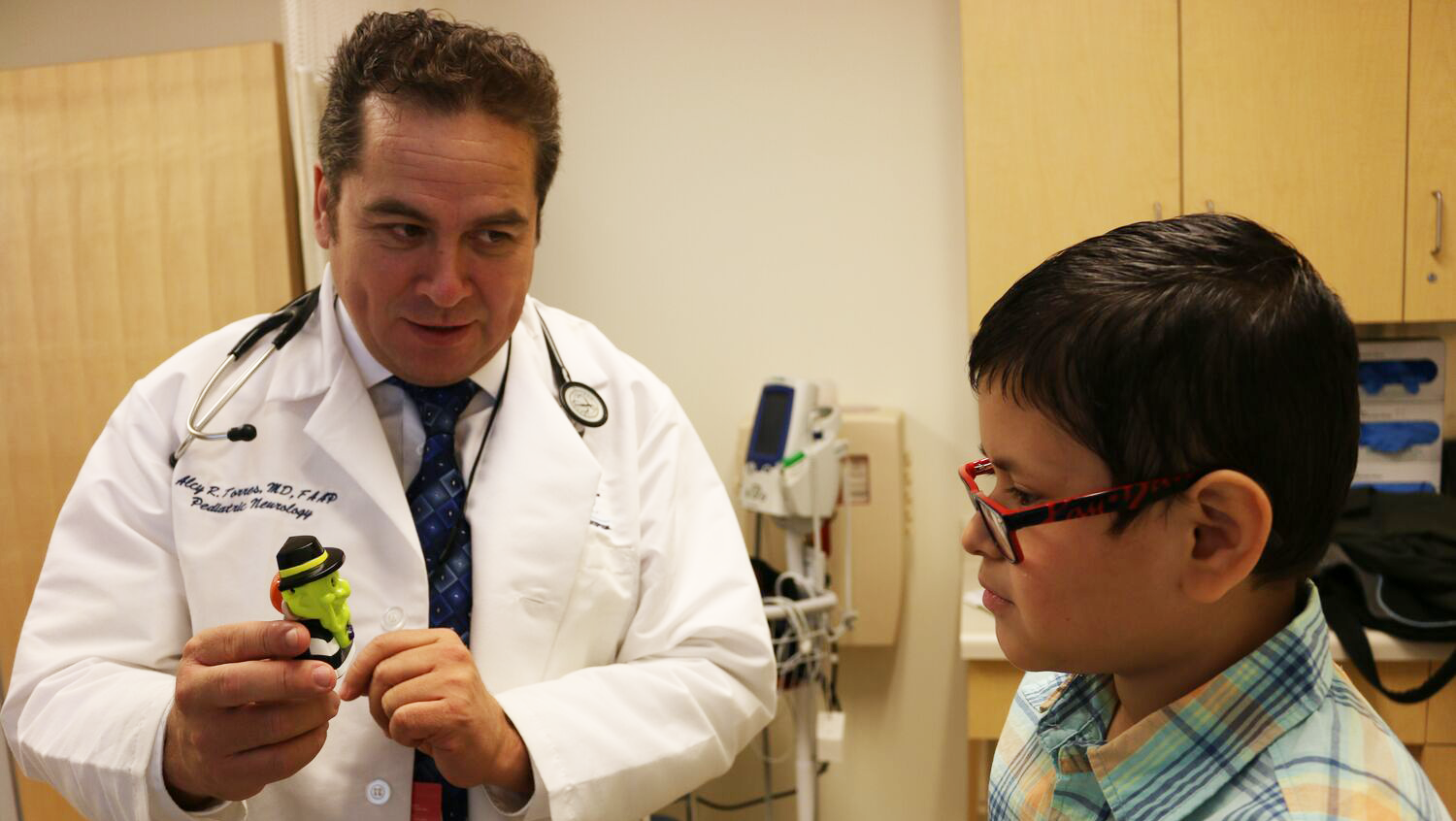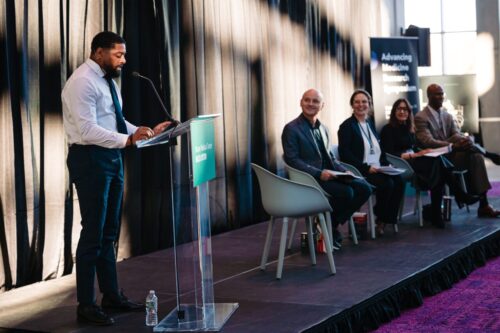A Global Vision on Humanism in Pediatric Neurology
March 31, 2022

Recently published book co-edited by pediatric neurologist spotlights importance of practicing compassion, empathy, and humanism in pediatric healthcare.
Compassion and empathy in healthcare settings build a stronger provider-patient connection. When providers are trained to incorporate these characteristics in their interactions with patients, they had better recognize their patient’s needs and desires. As a result, humanization occurs when providers “demonstrate interest and respect for their patients as a whole.” Studies have shown that clinician’s empathy is related to higher patient satisfaction when evaluated from the patient’s perspective.
Namaste: Humanism in Child Neurology, co-edited by Alcy Torres, MD, takes a global approach to investigating the perspective on humanism in child neurology and neurodevelopmental disabilities. Dr. Torres is the Director of the Concussion Clinic at Boston Medical Center and Associate Professor of Pediatrics and Neurology at Boston University School of Medicine. HealthCity spoke with Dr. Torres about compassion, empathy, and humanism in healthcare.
HealthCity: What compelled you to embark on this project of gathering and sharing a global vision of humanism in pediatric neurology?
Alcy Torres, MD: The goal of Namaste was to realize a global vision of humanism in child neurology and neurodevelopmental disabilities, and share that vision with our colleagues in every country in the world. The findings presented in this volume illustrate that specific vision with clarity and insights that exceeded our expectations. The authors who contributed to this effort deserve all of the credit for sharing their knowledge and experience with the world. My intention as co-editor was to be as inclusive as possible and to respect the diversity of the authors. Each chapter illuminates our global vision of humanism in Child Neurology.
HC: The life of a child neurologist is filled with stories of tremendous grief and joy, helplessness and reward. How have the experiences you have encountered while taking care of children with neurological disorders informed your perspective on the need for humanism in the field?
AT: Humanism plays an essential part of our relationships with the patients and their families. I will never forget a mother who brought her son with a neurodegenerative disorder, and after facing many challenges, he finally died. She invited me to the funeral, and it was just she, her fiancée and no one else. I couldn’t stop asking myself about the fairness in life and how relative the human life seems to be in certain contexts. In contrast, saving lives and given the smile back to the children and their families is one of the most beautiful human gifts. Every interaction with patients brings opportunity to apply humanistic values.
HC: For physicians, time is a tyrant. It leads to stress and burnout, making it difficult to practice humanism in medicine. What advice do you have for physicians who lack time but seek ways to exercise more humanistic care?
AT: Time is certainly an issue in healthcare today, but making the clinical visit as enjoyable as possible for both the patient and the physician might be an alternative that can compensate for time. Be intentional – get to know and actively listen to the patient during each visit. Personalized care and respect for patients’ beliefs and cultures are imperative in humanistic care. It is important to consider the reverse of the Golden rule “Treat the patient the way the patient would like to be treated”. Physicians need to be creative to efficiently maintain humanistic values. It’s essential to make sure patients know you care and are doing everything in your power not only to diagnose and treat, but help them live healthy lives. If the situation warrants it, it is okay to sometimes go way beyond the time scheduled. The goal is to never lose trust and a personal connection.
Every interaction with patients brings opportunity to apply humanistic values.Click To Tweet
HC: Respect, empathy, and dialogue are some elements of taking a patient-centered approach to care. What benefits does the practice of humanism in clinical care bring?
AT: When humanism is practiced in healthcare, patient is put first. A patient-centered approach reveals insights from the patient that improves clinical care processes, health inequities, and relationship management. Some other benefits of a patient-centered approach include:
- Improved outcomes
- Improved patient satisfaction
- Improved reputation for your organization
- Improved job satisfaction for providers
- Increased access to care
- Increased awareness and respect of patients’ values, needs, and preferences
- More dynamic coordinated care
- Better informed providers to effectively educate patients
HC: It sounds as if humanism and being a pediatric neurologist go hand in hand. The reasons that motivated you to become a physician are also the reasons that moved you to study humanism. What professional improvements should be made to cultivate and sustain the qualities and skills that make people both good humanists and good physicians?
AT: Medical schools are modifying their curriculums to include topics of humanism, and they are developing evaluations to measure several humanistic traits. As providers, we know to respect patient’s views and allow them to actively participate in their care. We ask about social determinants of health, as well as intervene and decrease where possible, any risk factors for diseases associated with poverty. However, some humanism cannot be taught in the classroom; it has to be discovered “within you.” It can take a certain situation for us to recognize we embody this essential characteristic. There is no better feeling for a physician than knowing you practice with humanistic traits, not because it is required, but because it’s inherent in you.


